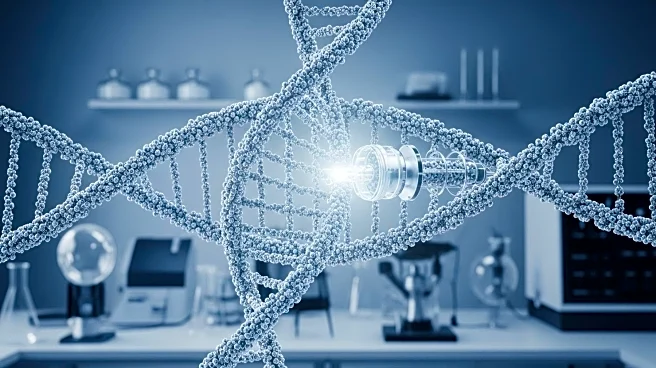What's Happening?
Northwestern University chemists have developed a new nanostructure that significantly improves the delivery of CRISPR gene-editing tools. The lipid nanoparticle spherical nucleic acids (LNP-SNAs) enhance CRISPR's ability to enter cells, tripling gene-editing efficiency and reducing toxicity compared to current methods. This advancement could revolutionize medicine by enabling safer and more effective genetic modifications. The study, published in the Proceedings of the National Academy of Sciences, highlights the potential of structural nanomedicine to improve genetic therapies.
Why It's Important?
This development is crucial for the future of genetic medicine, as it addresses the challenge of safely delivering CRISPR tools into cells. By improving delivery efficiency, the new system could expand the range of diseases treatable with CRISPR, potentially leading to breakthroughs in genetic therapies. The reduced toxicity also enhances the safety profile of CRISPR-based treatments, making them more viable for clinical use.
What's Next?
The research team plans to validate the system in multiple in vivo disease models, aiming to move towards clinical trials. The modular nature of the platform allows for adaptation to various therapeutic applications, potentially accelerating the development of new treatments. The technology is being commercialized by Flashpoint Therapeutics, which could lead to rapid advancements in genetic medicine.









